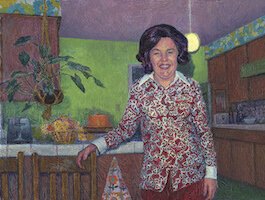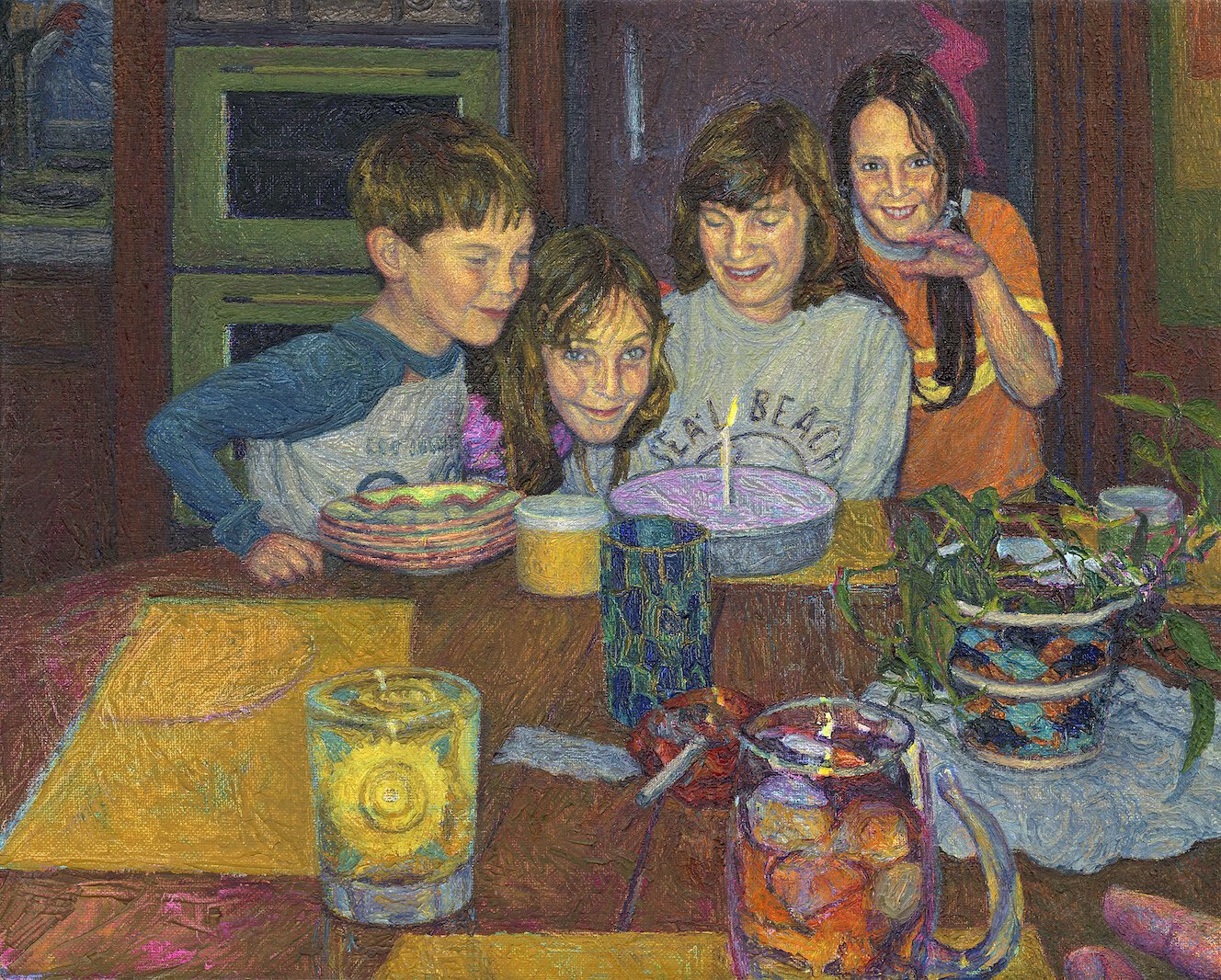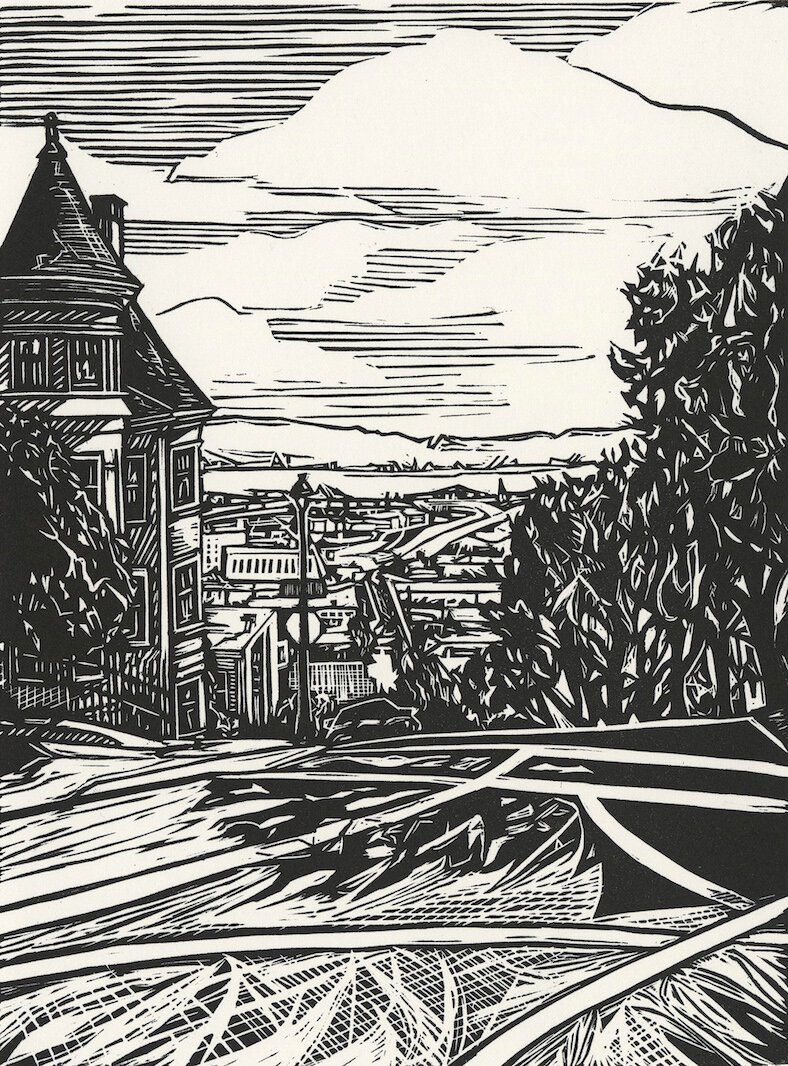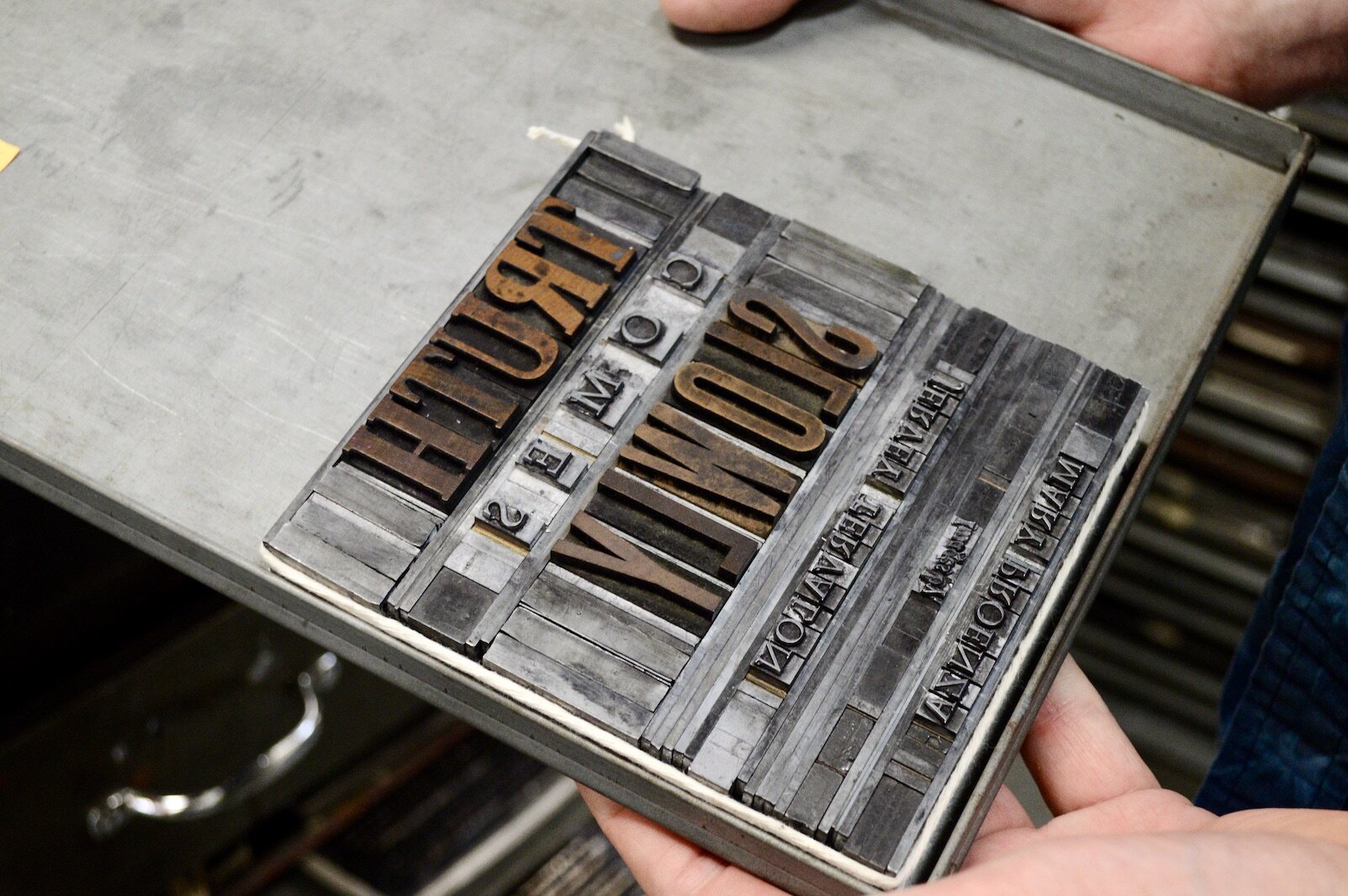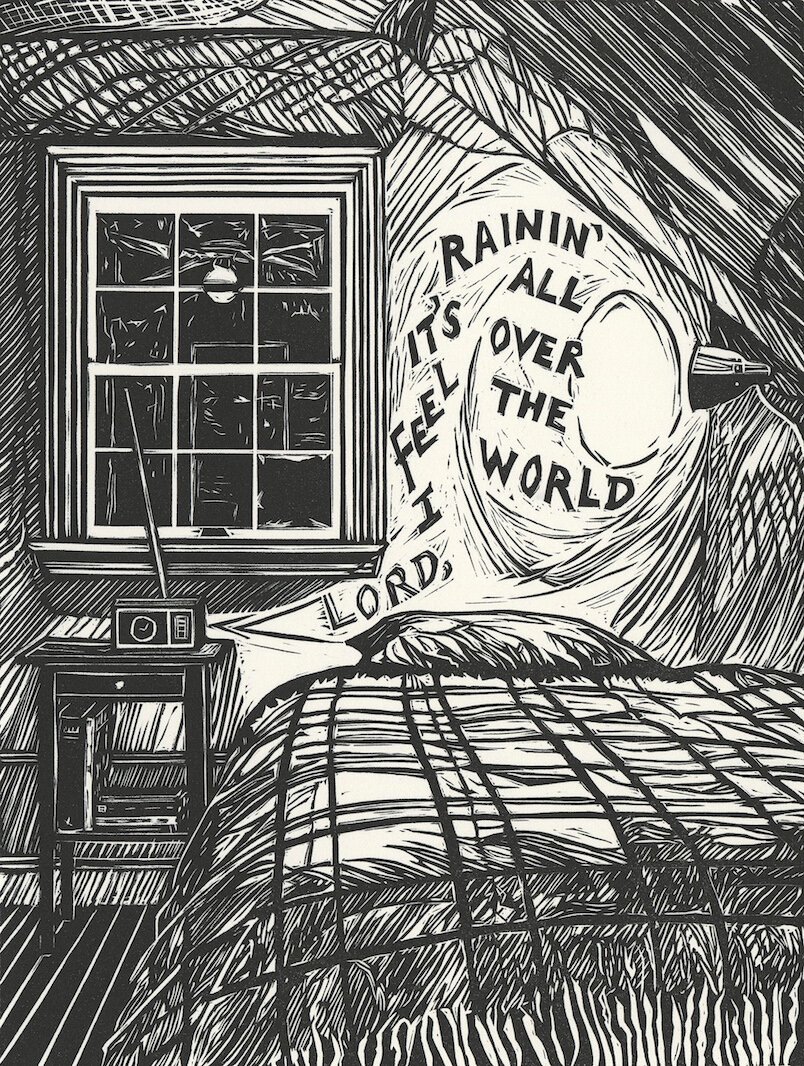Memories are the theme of two projects at the Kalamazoo Book Arts Center this spring.
“Memoir,” an exhibit of paintings, prints, and writings by Maryland writer and artist Mary Proenza, takes a look at her family’s struggles.
The KBAC letterpress book, “Truth Comes Slowly,” featuring linoleum cut illustrations by Proenza, contains a short story from Los Angeles writer Jervey Tervalon about his family’s involvement in a moment of gun violence when he was a child.
Normality
Proenza’s work at the KBAC is based on boxes of snapshots and other mementos she inherited when in her 20s after her parents died.
“For years, whenever I opened one, the smell — mold mixed with residual perfume of drawers that once held the photos and letters — recalled my parents’ embalmed bodies, and I’d shove it back into the furthest corner of a closet,” she writes in accompanying text, part of a memoir in progress.

She finally examined the contents a couple of decades later. The flood of memories from the photos were a starting point for her compositions – a blend of recollections contributing to stylistically enhanced details – in old photos in paint and prints.
At first glance, the work looks like artistic renderings of ordinary snapshots of a normal family. The first in the exhibit is of her older sister’s birthday party. The siblings crowd around the cake, looking excited and doing silly poses for dad’s camera.
Proenza expanded the scene, made a floral-print glass and a large mug prominent in the foreground. The glasses loom large.
It looks like a very normal scene, but Proenza notes that the glasses — floral-print for her mom, mug for her dad — are filled with scotch. The title is “Portrait of an Alcoholic Family.”

For us to say the family looks normal sounds a bit judgmental, insinuating that it’s not normal to have alcoholic parents, and it’s surprising to see moments of normal family joy in that context. But Proenza says that “normal” is the word to use.
“It’s such a tricky disease because it’s so common, so in that regard it’s normal. Also, drinking is very normalized, even when it has very devastating consequences,” she says.
“Also, when you’re inside of it, especially when you’re a kid, but even when you’re an adult — as we all know, whatever family you’re in and whatever challenges it presents, that’s your family, that’s your life. So there is that degree of normality, even when it’s rather destructive…. A family can be struggling with a very severe situation of alcoholism, but it doesn’t preclude moments of joy. It’s all wrapped up in very complex ways, I think.”
She didn’t want to simply reproduce the photos in paints and etchings. Using the rules and language of fine art, Proenza reproduced the memories of her childhood.
“The glass of scotch is foregrounded, it’s larger in scale than the normal cute kids in the back space,” she points out. “Maybe the first take (for a viewer) is like, ‘oh, this is a birthday party, a very ordinary, very happy…’ and then you’re like ‘oh, these large alcoholic beverages stand in for the parents and take precedence over the scene.'”

Other artistically rendered reproductions of snapshots in a screenprint show her father in his 30s, looking dashing in a robe, cigarette between knuckles, as if he has the world at the moment and more ahead of him. One of her mother, in an oil painting, beaming, in very 1970s attire, leaning on a chair for support. Another of her mother, still beaming, trying out a new ramp in her wheelchair.
Another struggle “Memoir” looks at is her mother’s lingering disability from a bout of childhood polio. A series of falls put her in a wheelchair later in life.
Proenza writes of carving a woodcut of her mother: “I carved material away to bring my mother’s image into relief, to give it form. Polio and alcoholism pared her away but left standing in relief the story that formed me. The compelling illusion as I work is that I’m physically remaking the people and spaces of my family and that this is the only way I can dig around, look around, in the quest to understand.”
The work feels very familiar, especially for those of us who grew up in the ’70s-’80s, when digital photos were not constantly taken every day of every moment. Before iPhones, film and the cost of processing made photos a more-rare effort at capturing a memory, usually happy memories.
“It awakens that feeling of memory even if you don’t particularly have some verbal construction with it, but there’s certainly that flash of recognition I think for a lot of people of disparate family backgrounds,” she says. “And of course, alcoholism is such a common disease in our society, so I think there’s another significant set of people who can relate on that level, or on the level regarding disability, or just more broadly, just families. As we all know, every family has its struggles.”
Proenza hopes the work is universal. “It’s about families more broadly,” she says, not just her’s. “I hope it makes people think about their own families, and how families operate in general.”
Don’t be creative, just be observant
Tervalon’s “Truth Comes Slowly” is a story and a memory that’s followed him around for a long time.
“It’s weird, I wrote that story probably when I was 19 or 20, and I’m 63 now,” he says from a California beach, taking a break before teaching writing students at UC Santa Barbara.
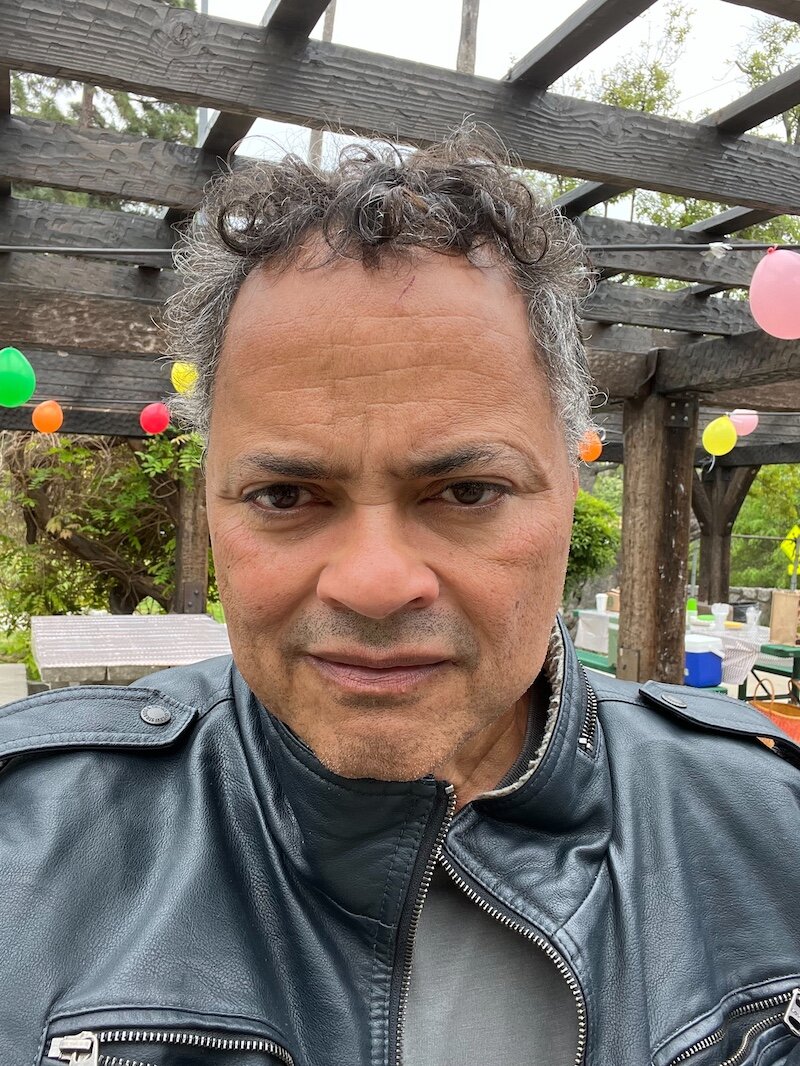
He wrote it for a narrative prose class, “and I’m not even sure it ever got read.”
“From the time that it happened to when I was writing about it, wasn’t that long…. It’s a story that kept occurring to me because it’s so weird.”
Tervalon was born in New Orleans, to a light-skinned African American family (a background he used to write his 2000 best-selling fiction novel, “Dead Above Ground”). When he was 10, his family moved to California. They eventually moved to Los Angeles, but stayed briefly with relatives in San Francisco.
In the story, it’s the late-’60s. We’re looking through his 10-year-old eyes as he meets new relatives in a new city. He falls asleep to “Rainy Night In Georgia” on the radio, and the story’s viewpoint switches to his mother’s. There’s a scene of abuse of a cousin by her boyfriend, a lot of anger, an uncle with a gun, and then a dead man.
His mother has to face arriving cops as “a colored woman who looked white, standing next to a dying black man,” he reads from the story at a KBAC reception in April. She manages to convince the police it was self-defense. “There was a white woman to explain all of this to them,” his mother realizes in the story.
Then it’s back to young Jervey’s viewpoint, a very tense breakfast, his discovery of reddish-brown stains outside the door on the sidewalk.
Some of the details he got from his family, some he observed, and some he had to recreate based on his experiences.
His writing is within the boundaries of realism. Tervalon recently told his writing students, “don’t worry so much about being creative, just be observant. If you’re observant, there’s always something to write about. Being creative, that’s poisonous, almost.”
Even in fiction, a writer needs parameters, “so you don’t go off in some crazy direction,” he says. “Creativity a lot of times is just a function of paying attention.”
Old friends meeting in Kalamazoo
Proenza and Tervalon attended their KBAC reception in April.
It says something that artists and writers from both coasts would come all the way to Kalamazoo. But an organization that is devoted to crafting books and prints, from making the paper to laying the type, printing, and binding it all into a solid artifact, is rare.
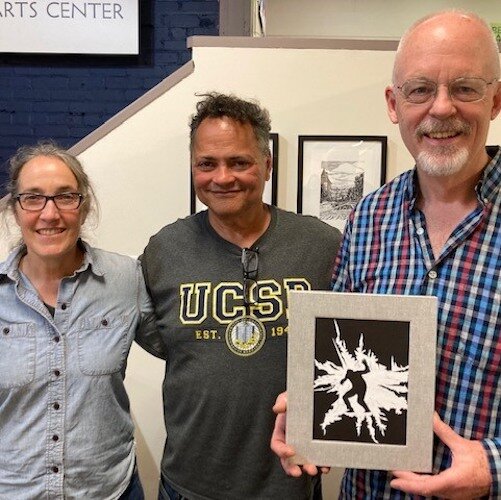
“I’ve never heard of anyone doing what he does,” Tervalon says of Jeff Abshear, KBAC’s executive director. “It’s pretty singular, pretty amazing. Sometimes when you’re a writer, it gives you a very lonely existence. You write something that you think is great, and no one pays attention to it… And sometimes there’s not a lot of care given to the product. You have to fight so hard to get your point across. But with Jeff, you don’t deal with that. He listens to you.”
“Truth Comes Slowly” and “Memoir” were also a reunion of old friends. Proenza, Tervalon and Abshear, Proenza says, “attended a very special program called the College of Creative Studies at UC Santa Barbara, and it’s a close-knit group of people who now have been deeply focused on creative work for decades.” Tervalon and Abshear attended together; Proenza attended about 10 years later, but came to know the others as part of a network of CCS writers and artists.
Proenza drew from her experiences of living in San Francisco to illustrate “Truth.” Working on the book as a collaborative project, was “absolutely wonderful,” Proenza says. “Jervey’s writing is so imagistic that it was such a pleasure to come up with the designs because the story was so suggestive visually…. I think the work is really enriched by a number of hands and minds working on it in collaboration.”
NEA grants
Proenza and Tervalon’s projects, as well as two poetry chapbooks (by Monica Gomery with images by Vicki VanAmeyden, and Lauren K. Alleyne with images by Vicki Cook) and six broadsides, were made possible by a National Endowment for the Arts Grant.

This month, Abshear got word that the KBAC won a new NEA grant. This will go toward 2023 projects by Jamaican-American writer Kia Penso from Washington D.C.; Ojai, Cal. artist Caroline Allen; Grand Rapids poet W. Todd Kaneko, and Williamsport, Penn., artist John McKaig.
All books and prints are available at the KBAC shop. “It’s such a huge difference than going to a bookstore and buying a regular book. All the thought, care, and design, just the physical activity that goes into setting type, printing pages, carving images, sewing books, all that builds up a special quality,” Abshear says.
It means more than just the artist and writer cared about the work?
“Exactly,” Abshear says. “All the people who do that work — this is a work that deserves that treatment”
__________________________________
“Memoir” by Mary Proenza will be up at the Kalamazoo Book Arts Center until May 27.
“Truth Comes Slowly” is available at the KBAC shop.

